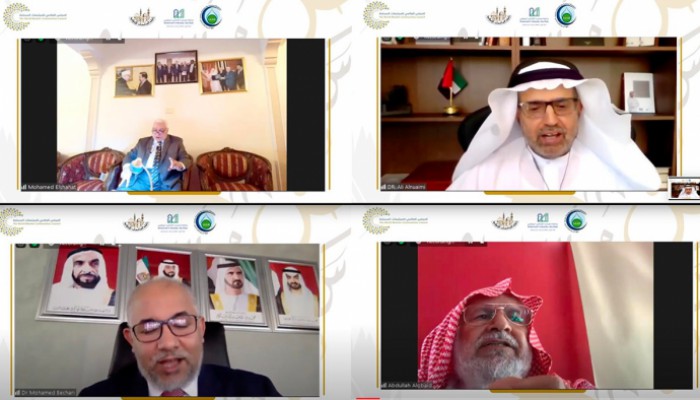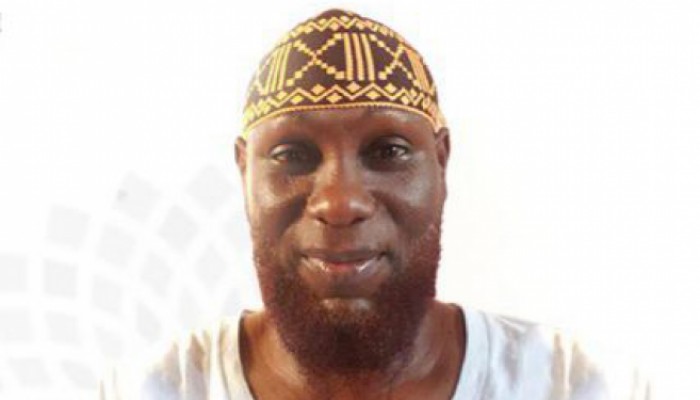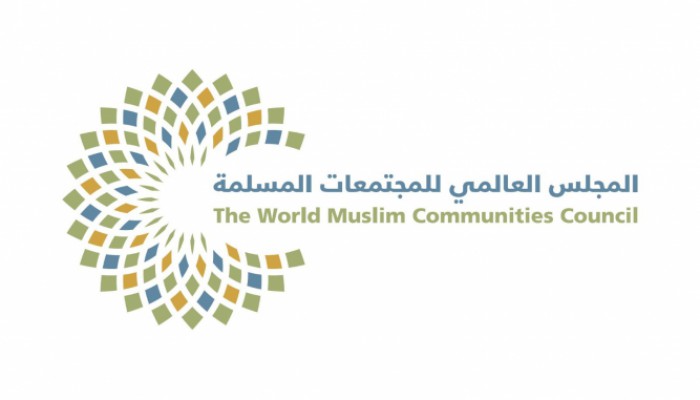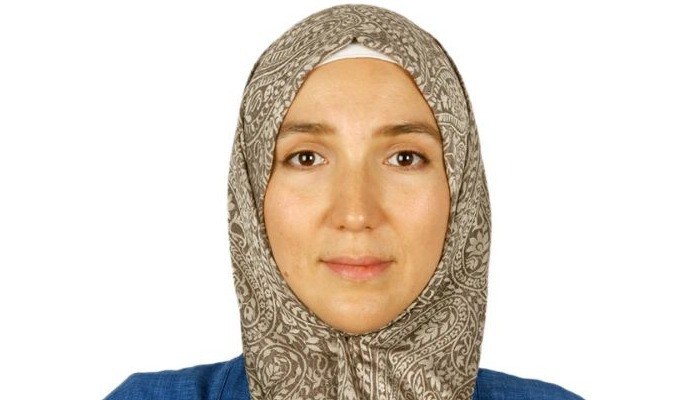
Virtual Conference "Digital Resources for Teaching Arabic Non-Native Speakers" Calls for Creation of Interactive Global Digital Educational Platform
- 2020-Jul-26
Participants in the thirteenth annual virtual conference, "Digital Resources for Teaching Arabic Language to Non-Native Speakers", under the auspices of the World Muslim Communities Council and the Association of Islamic Universities, which organized by the Ibn Sina Institute for Humanities, stressed the need to create an interactive digital global platform to achieve effective participation from all parties of educational process, and improve quality of education.
On Saturday, July 25, 2020, the conference started via ZOOM and social media applications, at 9 am GMT, seeking to achieve several goals, which are monitoring successful experiences, in activating digital resources in teaching Arabic to non-native speakers, and discussing the needs of Arabic teachers and learners to digital sources, especially in emergency circumstances such as that imposed by the Corona pandemic, as well as access to digital developments in preparing foreign language learning materials, improving the performance of institutions and centers interested in teaching the Arabic language, improving its tools and methods, and contributing to solve its problems to harmonize the new reality globally, as well as discussing scientific standards for employing digital resources in teaching Arabic to non-native speakers.
Opening session
In his opening speech, His Excellency Dr. Ali Rashid Al-Nuaimi, Chairman of the World Muslim Communities Council, pointed out the critical importance of the conference topic, especially with the outbreak of the Corona, which highlighted the importance of digital resources in various field of science, stressing that When teaching Arabic to non-native, must take into account that we are targeting a different audience, accustomed to receiving the language according to their specific mechanism and patterns of learning, so we must present the Arabic language in a context completely different from its teaching in the Arab world.
Al-Nuaimi stressed the importance of the role of teachers to serve as models for leadership and adopt initiatives based on creativity and innovation in providing language to non-native speakers, and important of tasting the Holy Qur’an and the Sunnah, with ease, without the tools of translation or complications of the Arabic. He is speaking on the necessity of employing technology and digital resources in the language Arabic, and joint work to provide a platform that brings together digital resources for the benefit of everyone who educates non-Arabs in the Arabic language.
His Excellency Dr. Osama Al-Abed, Secretary General of the Association of Islamic Universities, said that language is a blessing from God to distinguish humans from other beings. Language is associated with thought and capable of creativity and innovation, explaining that the Arabic language is one of the oldest and richest languages. It is the language of the Holy Qur’an, and recognized globally, and is the source to interpret the Qur’an and the Sunna. It is also the authentic linking for all Muslims around the world. He is stressing the need for teacher of the Arabic language must possess several skills, such as extensive real experience, culture and knowledge of Arab heritage, to be role models in his behavior, and appreciation of the learners' culture, as well as the attention that must be paid to grammar, discursive styles and the phonetics. Also to increase competitiveness between the institutions concerned.
His Excellency Dr. Abdullah bin Saleh Al-Obaid, President of the International Association for Teaching Arabic to Speakers of Other Speakers, pointed out that the problems of teaching Arabic to speakers of others have multiplied due to Corona, but that keenness to follow up on developments reflects sincere intentions to address challenges, stressing the need for more studies and giving to avoid this The impact, especially with the ambiguity surrounding this disease, and undertaking initiatives that anticipate the future and contribute to addressing the reality of independent education in the Arabic language, which was not immune to the challenges of education in general, as well as designing programs and teaching methods for the Arabic language for speakers of other languages and intensifying the content and focusing on factors and developments, to come out The best inputs, best treatments and outputs in teaching Arabic to non-native speakers.
His Excellency Dr. Mohammad Al-Zarif, Dean of the College of Arts and Humanities at Mohammed V University in the UAE capital Abu Dhabi, said that Allah cherished the Arabic in his holy book, which was enriched by civilizations, as this language has great religious and cultural value for all who seek glory and glory. He is confirming that the people of the world have a desire to learn the Arabic language as an appreciation of its civilizational, religious and economic strength, and it is one of the most widespread languages of the world. He said that the UAE’s has an experience in supporting the Arabic language, and its belief in the Arabic language, digitization, civilization and technology to achieve the good and development of all humanity, not to forget the great role of Mohammed V University in Abu Dhabi In making the Arabic language as the centerpiece of its programs, so the university has an integrated project that will be strengthened by other projects to develop the Arabic language for non-native speakers. He is stressing that the university's experience in distance education will be at the service of this conference to achieve human communication.
His Excellency Dr. Mahmoud Ismail, Secretary-General of the King Abdullah Center for the Service of the Arabic Language, explained that with the outbreak of the Corona, people suddenly realized that there are computer capabilities that were not utilized in a required way, especially in the field of distance education, stressing that there are many language education programs of Arabic for non-native speakers on the Internet should be at the service of everyone.
At the end of the opening session, His Excellency Dr. Mohamad Bachari, Secretary-General of the World Muslim Communities Council, anticipated the future of digital “distance” learning, describing it as the “probe of hope” for next education, after the smart digital curriculum became the basis of the entire educational process, and Keeping pace with digital education has become an irreversible global imperative, stressing that the experiences of teaching the Arabic to non-native speakers is a hope prope for development, so it is imperative to synchronize digital development by taking into account teaching every science using an authentic Arabic, and modern digital vision far from complexity, calling for setting an Arabic reference framework for teaching Arabic language to non-native speakers, and setting an international test to measure language proficiency as used in other languages, as well as creating an interactive platform that collects and coordinates all initiatives under the supervision of specialized institutions.
The conference sessions revolved around several agenda, including the facts and challenges of Arabic language teaching via the Internet, smart device apps to non-native speakers; evaluating Arabic language teaching resources in the face of the Corona pandemic; language blogs and their use in teaching Arabic to non-native speakers; use of social networking sites and apps in teaching Arabic to non-native speakers; in addition to the role of electronic language dictionaries, games and electronic language games in teaching Arabic to non-nativ speakers.
The first session of the conference came under the title "Using the internet and social media apps to teach Arabic to non-native speakers"; the second discussed the evaluating of the sources of teaching Arabic in the face of Corona; the third discussed how to use smart devices apps in teaching the Arabic language to non-native speakers; while the fourth session was titled "Issues in Teaching Arabic to Non-Native Speakers".
Create an interactive global digital educational platform
At the end of the conference, the participants reached a number of recommendations:
First: Creating an interactive global digital educational platform to achieve effective participation from all parties in the educational process, and improving the quality of education by providing programs with knowledge, and methodological sufficiency that enables the linguistic student to master the language skills through:
- Building and linking educational curricula to modern technologies while providing scientific resources, tests and duties on one platform, under the supervision and sponsorship of an international organization or institutions supporting the Arabic language for non-native speakers.
- Preparing new digital educational series with international standards and references that are compatible with the requirements of teaching Arabic to non-native speakers of other languages remotely, taking into consideration the difference in local cultures.
- Establishing a digital library to serve as an information bank and an archive of international experiences specialized in teaching Arabic to non-native speakers.
- Benefiting from the famous smartphone apps in teaching Arabic to non-natives speakers, such as the Duolingo, Memrise, Busuu, and others.
Second: Establishing a common frame of reference for teaching Arabic to non-native speakers, through:
- Supporting and encouraging research and studies in the field of teaching Arabic to non-native speakers with understanding according to international standards for evaluation and building digital tests.
- Defining and adopting quality standards in teaching the Arabic language digitally to non-native speakers.
- Forming a specialized committee to develop plans and driving mechanisms to develop curricula in Arabic for non-native speakers.
- Issuing a scientific journal specialized in studies and research related to Arabic language educational issues for non-native speakers.
Third: Rehabilitation of human resources specialized in teaching Arabic to non-native speakers remotely, through:
- Establishing a series of training courses, to train teachers in the use of computer, communication and technical skills, and pedagogical methods, modern teaching methods and methods of activating electronic programs on smart devices.
- Linking experts in technology and linguists to achieve full technical benefit, and design apps to spread the Arabic language to non-native speakers through the international network, while exchanging experiences between universities and specialized institutes, as well as learning about successful experiences in the use of technology in teaching Arabic to non-native speakers.
- Designing a special professional diploma in training Arabic teachers for non-native speakers remotely.
- Creating an award to encourage researchers to innovate in the field of Arabic language education, sponsored by the conference in its annual sessions.
Fourth: Call for coordination between the Academies Of the Arabic Language and various societies and bodies interested in serving the Arabic language for non-native speakers in order to develop curricula and teaching methods, and raise the level of educational institutional performance.
Fifth: Preparing a future vision to achieve the optimal investment for social media platforms in teaching the Arabic language to non-native speakers, with the need to provide an infrastructure, in order to make the teaching Arabic a second language successful through social networks.
Sixth: Providing financial and logistical support for language programs that teach Arabic to non-native speakers remotely.
Seventh: Continue to organize the annual scientific conference of the Ibn Sina Institute for Humanities, which will study the teaching Arabic to non-native speakers.







